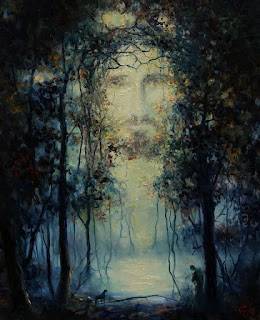Matthew 21:1-11
And they approached Jerusalem and came to Bethphage by the Mount of Olives. Then Jesus sent two disciples ahead and said to them, “Go to the village which you see before you and at once you will find a donkey tied there and her foal with her. Untie them and bring them to me. If anyone says anything to you, tell him that the Lord needs them, and he will let you take them right away.”
This took place to fulfill what was spoken through the prophet:
 |
| Filipo Lippi |
‘Say to the daughter of Zion,
Behold, your king comes to you in majesty.
Gentle is He, and He rides on a donkey and a foal of the beast of burden.’
The disciples went and did as Jesus had instructed them. They brought the donkey and the foal, placed their garments on them, and Jesus sat on them. Many out of the large crowd spread their clothes on the road, while others cut branches from the trees and spread them on the road. The crowds that went ahead of them and followed Him shouted:
Hosanna to the Son of David!
Blessed is he who comes in the Name and Power of the Lord!
Hosanna in the highest! [Sing to Him in the highest heights!]
When Jesus entered Jerusalem, the whole city was stirred and asked, “Who is he?” The crowds answered, “This is Jesus, the prophet from Nazareth in Galilee.”
4th Passiontide
Palm Sunday
April 5, 2020
Matthew 21:1-11
The images and pictures of Holy Week reveal a secret. In mythology, the donkey is a symbol for the physical body – Brother Ass, as St. Francis called it.
 |
| Buongiorno |
Christ came to help human beings establish a new relationship with their physical nature. The image of Christ riding the donkey and its foal in majesty is a picture of our own future. We will gradually lovingly and gently master our bodily nature. It will carry us where we decide to go. And at the same time, through Christ, we will each develop a new body, a resurrection body. The gospel image of the new young foal alongside its mother even hints at the future development of this new kind of body.
 |
| Grunewald |
Here at the beginning of Holy Week, Christ directs His body toward Jerusalem and its Temple. He directs it willingly and knowingly toward the place His own death. After today He will enter and leave Jerusalem every day on foot until late Thursday, when he will remain, entering into the body’s death process. And at the moment of death, His birthing of a new kind of body, the resurrection body, will begin. Step by step we can accompany this process, for
Behold, your king comes to you in majesty.
Gentle He is,
and he rides on a donkey
and on a foal of the beast of burden. Matthew 21:5
www.thechristiancommunity.org














